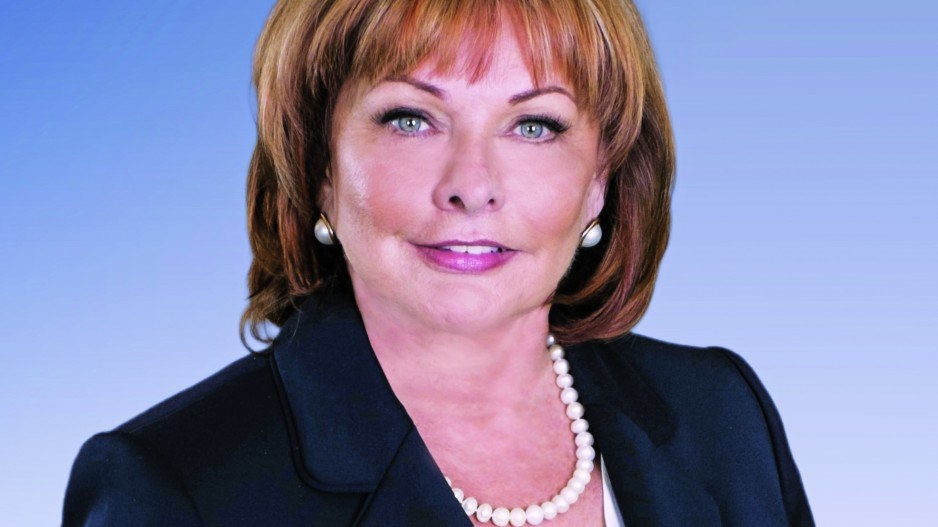Surrey voters sent a clear message this past municipal election: stay the course.
Departing Mayor Dianne Watts’ hand-picked Surrey First successor Linda Hepner notched a landslide victory November 15, a victory that was in stark contrast to polling from Insights West and Mainstreet Technologies that had forecast a tight race between Hepner, fellow councillor Barinder Rasode and former mayor Doug McCallum.
Hepner collected more votes than McCallum and Rasode combined, and Surrey First swept all nine council seats as they did in the 2011 election.
But while Hepner’s decisive win may have surprised pollsters, with the benefit of hindsight it appears that her economic track record gave her a clear advantage over her two opponents. Hepner was the City of Surrey’s manager of economic development before becoming a councillor, and she is a huge champion of the Surrey City Development Corp. (SCDC). Both McCallum and Rasode said that, if elected, they would disband the government-run SCDC.
“Obviously keeping the focus on strong investment and innovation really resonated with the public,” said Hepner. “They liked the direction we’re headed when it came to that issue.”
Hepner said crime, seen as the No. 1 issue in polls leading up to the election, did not swing voters the way many predicted. “I think this idea of creating a culture of lockdown was not necessarily what people wanted.”
Surrey First rolled out an extensive economic platform when the campaign got underway, and it appears voters might have gravitated towards that instead of picking the best crime fighter for the city.
When Surrey First unveiled its platform, its top two bullets were Build Surrey, the $800 million capital projects plan that was launched in 2012 and spawned the new downtown city hall building, and its Innovation Boulevard policy, which aims to make the city a leading player in the Lower Mainland when it comes to health-care technology.
Surrey First Coun. Judy Villeneuve, who’s been on council for over 25 years, said the economic outlook weighed heavily on the minds of voters.
“I think we really sent a message that we wanted to build the city in a smart way, as well as in a way that we could create jobs closer to home because we have almost 1,200 people a month moving to the city of Surrey.”
Villeneuve cited forecasts that 65% of the economic growth expected to take place over the next decade will happen in the Fraser Valley as another reason voters chose a Surrey First slate.
“We’re aware of that and we’ve created a climate in this city that is open for business, but at the same time with a strong message that we’re going to be providing the infrastructure necessary and environmental protection as we grow this city in a positive direction.
“I think [voters] definitely sent a message that they were happy with what we’re doing. We realize that nothing is perfect and we still have a lot of work to do in a number of areas. But I think that the voters said that they didn’t feel change was necessary.”
Coun. Tom Gill, who garnered the most votes out of any candidate on the ballot, said crime is still a hot-button issue and not something that will take a back seat.
Hepner, when asked about her first priority going forward, focused on yet another prominent campaign issue: transportation. She’s promised light rail for the city by 2018. Premier Christy Clark has promised a Lower Mainland transportation referendum sometime in the near future. The TransLink Mayors’ Council recently unveiled an investment plan for the region that has light rail in Surrey as one of the top priorities. Hepner said given Surrey’s spread-out geography, linking the multiple town centres is imperative to overall growth for the city.
“If we don’t get the kind of transportation that connects our community, we simply can’t move forward with any kind of momentum.”




